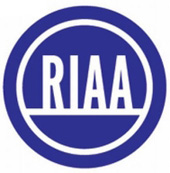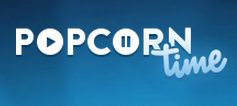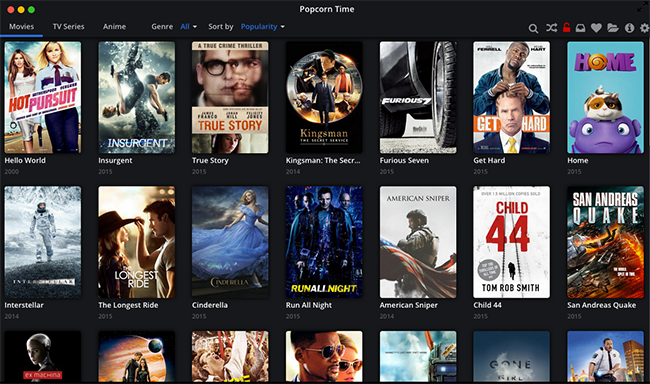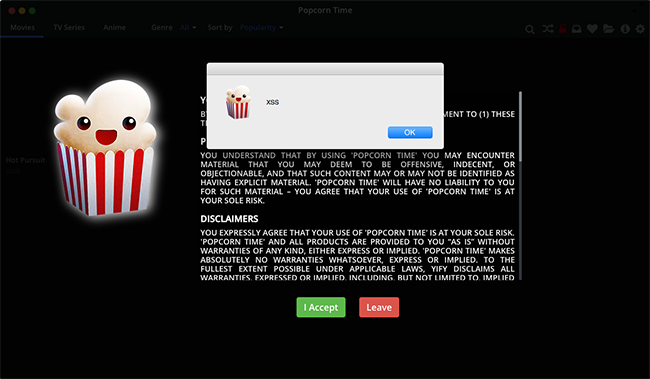RIAA Asks BitTorrent Inc. to Block Infringing Content
mercredi 5 août 2015 à 00:44 Through no real fault of its own, uTorrent creator BitTorrent Inc. has become associated with the massive piracy carried out every day by its users. Due to the company sharing its name with the successful protocol, for many BitTorrent piracy and BitTorrent Inc. are one and the same thing.
Through no real fault of its own, uTorrent creator BitTorrent Inc. has become associated with the massive piracy carried out every day by its users. Due to the company sharing its name with the successful protocol, for many BitTorrent piracy and BitTorrent Inc. are one and the same thing.
That incorrect perception has proven corrosive for the company, so much so that for the past several years BitTorrent Inc. has been on a mission to position itself as the friend of content creators rather than their foe.
Now, following dozens of self-certified claims that the company doesn’t support piracy, BitTorrent Inc. has somewhat inevitably found itself in the crosshairs of the music industry.
In a letter dated July 30, 2015 sent from Brad Buckles, Executive Vice President of Anti-Piracy, the RIAA asks BitTorrent Inc.’s CEO to live up to his company’s claims of being a musicians’ champion. It begins with a subtle but serious reference to the company’s Distributed Hash Table.
“This year marks the 10th anniversary of BitTorrent Inc.’s development of a distributed hash table (DHT) approach to file distribution, and yet, as we have previously discussed with your company, we remain very concerned about the overwhelming use of BitTorrent Inc. developed clients to infringe our members’ content,” Buckles begins.
Building the RIAA’s case, Buckles says that software developed by BitTorrent Inc. facilitated approximately 75% of at least 1.6 million torrent based infringements in the United States during 2014.
Again referencing BitTorrent’s DHT – the system which allows torrents to be shared even when external BitTorrent trackers go down – the RIAA says that a sample of 500 audio torrents extracted from the database showed that 82.4% were “highly likely” to be protected by copyright.
Turning to comments previously made by now-former BitTorrent Chief Content Officer Matt Mason, Buckles challenges the notion that “the piracy happens outside the BitTorrent ecosystem.”
“[As] the above data clearly shows, this argument is disingenuous when BitTorrent Inc. itself is the source of the software that is used so overwhelmingly for infringement,” Buckles says.
Referencing Mason’s earlier comment that anyone using BitTorrent for piracy was “doing it wrong”, Buckles insists that the company now actually does something concrete to mitigate piracy.
“We urge BitTorrent Inc. to live up to those words and take meaningful steps to deter this widespread infringement occurring using its own products and services,” Buckles says.
The RIAA concludes with a list of hashes of its members’ works that have been infringed via BitTorrent Inc.’s “products and services” along with a suggestion that the company needs to take continuous action moving forward.
“We are willing to establish a process to share the hashes with BitTorrent Inc. on a regular basis so that BitTorrent Inc. can use the information to deter further infringement of those files via its goods and services,” the RIAA adds, while helpfully offering additional support, if needed.
“We also know of several companies that offer services to help identify infringing torrent sites and files that may be useful in helping BitTorrent Inc. take steps to reduce their facilitation of infringement.”
The RIAA stops short of asking BitTorrent Inc. to block or filter content in any specific manner but it’s clear what the music industry group has on its mind.
It’s been a long time coming but this move against BitTorrent Inc. is not unexpected and the company must’ve been preparing for the day for a long time. The ball’s now in the uTorrent creator’s court and it’s going to be a fascinating game, little doubt about that.
Source: TorrentFreak, for the latest info on copyright, file-sharing, torrent sites and the best VPN services.
 Malibu Media, the Los Angeles based company behind the ‘X-Art’ adult movies, is one of the most active copyright trolls in the United States.
Malibu Media, the Los Angeles based company behind the ‘X-Art’ adult movies, is one of the most active copyright trolls in the United States.  With the phenomenon spreading around the world, the blocking of ‘pirate’ websites is emerging as a key anti-piracy strategy of the entertainment industries.
With the phenomenon spreading around the world, the blocking of ‘pirate’ websites is emerging as a key anti-piracy strategy of the entertainment industries.  When entertainment industry groups speak publicly of the piracy situation, the rhetoric suggests that the sky is falling, that the very future of the business is at risk if something isn’t done quickly.
When entertainment industry groups speak publicly of the piracy situation, the rhetoric suggests that the sky is falling, that the very future of the business is at risk if something isn’t done quickly. Almost 18 months since it burst onto the scene in 2014 and Popcorn Time is still one of the most popular file-sharing applications on the market.
Almost 18 months since it burst onto the scene in 2014 and Popcorn Time is still one of the most popular file-sharing applications on the market.
